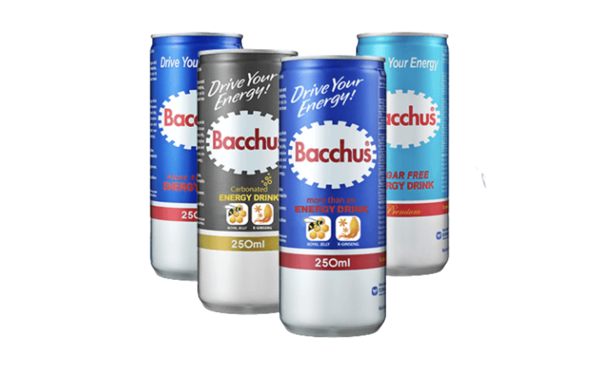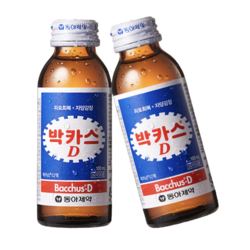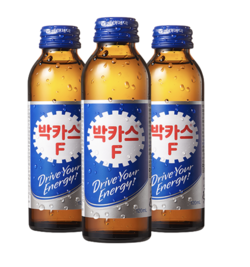Bacchus just posted its highest sales in history. The 62-year-old energy drink, developed in postwar Korea by Dong-A Pharmaceutical, pulled in 348.2 billion won ($240 million) in 2024, a 6.2 percent jump from the previous year.
Domestic sales climbed 3 percent to an all-time high of 264.6 billion won, while overseas revenue surged 17.7 percent to 83.6 billion won, led by strong demand in Cambodia, the company said Tuesday.

It’s a striking reversal for a brand that, just four years ago, stumbled under pandemic-driven uncertainty. In 2020, sales dipped to 305.8 billion won, ending an 11-year streak of growth.
Overseas sales dropped 25.8 percent in 2023, falling from 95.7 billion won in 2022 to 71.0 billion won, but they rebounded last year, with exports to Cambodia driving the turnaround.
Bacchus has recorded annual sales exceeding 300 billion won for six consecutive years.

First launched in 1961 as a tablet, Bacchus initially struggled. The pills dissolved too quickly, leading Dong-A Pharmaceutical to reformulate the drink in 1962 as a liquid ampoule, but fragile glass packaging posed logistical challenges. It was only in 1963 that Bacchus took on the bottled form now widely recognized in Korea.
While Bacchus remains a constant at home, its overseas expansion—especially in Southeast Asia—has been transformative.
Since 2009, Cambodia has become its top foreign market, with the company adapting its strategy by switching from bottles to cans, advertising on tuk-tuks (auto-rickshaws), and embedding itself in local events.
The Philippines and Mongolia have since emerged as major markets, pushing exports higher year after year.
Unlike in Korea, where Bacchus is sold in bottles, export versions are distributed in cans—available in Bacchus, Bacchus Sugar-Free, and Bacchus-X. The brand was also the first to launch an outdoor beverage advertisement in Cambodia.
More than 23.3 billion bottles have been sold as of 2023—"enough to circle the Earth 70 times," a Dong-A Pharmaceutical official said. "No other Korean pharmaceutical product comes close."
Bacchus’ product lineup has expanded alongside its global footprint. Bacchus-D (Double), with 2,000 mg of taurine, remains the best-seller in Korea, while Bacchus-F (Forte), with 1,000 mg, offers a milder alternative. A decaf version launched in 2021 caters to caffeine-sensitive consumers.

Last year, Bacchus-D sales reached 141.1 billion won, up 2.2 percent from the previous year. Bacchus-F rose 2.5 percent, hitting 127.0 billion won. Over the past decade, Bacchus’ domestic sales have climbed 43.8 percent, from 186.5 billion won in 2014.
“Bacchus provided both energy and nutrition when people needed it most,” said the Dong-A official, recalling its role in the postwar years when malnutrition was widespread.
Meanwhile, Dong-A Pharmaceutical’s revenue and operating profit in 2024 increased across all divisions, with the over-the-counter (OTC) medicine segment driving 15.9 percent growth. The company’s total revenue expanded 7.6 percent to 687.7 billion won, and operating profit climbed 7 percent to 85.2 billion won.
Dong-A Socio Holdings, the parent company of Dong-A Pharmaceutical, reported a record annual revenue of 1.33 trillion won in 2024, a 17.8 percent increase from the previous year. Operating profit rose 6.8 percent to 82.1 billion won, extending the company’s steady financial growth since transitioning to a holding company structure in 2013.
Related articles
- Dong-A ST sees profit inch down amid rising R&D costs, readies US biosimilar launch
- Dong-A ST’s Q2 operating profit falls 19% on year due to smaller prescription drugs sales
- Dong-A ST's operating profit down 8% in Q3 amid sluggish energy drink sales
- Dong-A ST’s sales of prescription drugs up 24% in Q3
- Dong-A Socio Holdings kicks off ESG supply chain program for 30 key partners

